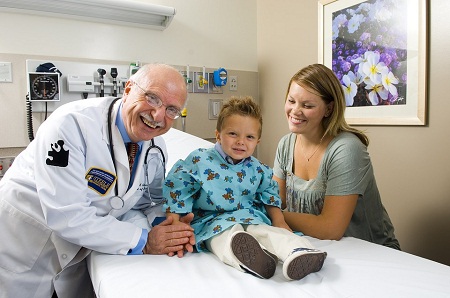 A brand-new doctor is finishing up his residency and beginning the tedious search for that perfect job. Alongside him is a classmate who decided to start her career as a locum tenens family physician until such time as she knows what she really wants to do. Both doctors have the potential to go and do great things in family medicine. But will they fundamentally change it, along with the rest of a new wave of younger doctors just getting started?
A brand-new doctor is finishing up his residency and beginning the tedious search for that perfect job. Alongside him is a classmate who decided to start her career as a locum tenens family physician until such time as she knows what she really wants to do. Both doctors have the potential to go and do great things in family medicine. But will they fundamentally change it, along with the rest of a new wave of younger doctors just getting started?
Participants at the American Academy of Family Physicians 2017 National Conference of Family Medicine Residents and Medical Students in late July seem to think they can. In fact, one of the highlights of the conference was a panel discussion featuring four veteran doctors explaining how their younger counterparts could transform healthcare just by the view they took of family medicine.
From the panel discussion came many salient points. The details of that discussion will not be discussed here, but there are six takeaways we think are important for family medicine doctors.
1. Look Beyond the U.S.
As broken as the U.S. health care system may appear to be, it is still head and shoulders above the systems in other places. One of the conference panelists spoke of the time he spent working in El Salvador during the early part of his career. That experience forever shaped how he views family medicine.
2. Use Your Experience
The next panel suggestion is that doctors use their experience to create better family medicine. For example, one of the wonderful things about being a locum is being able to work in so many different environments. All the experience a locum gathers is an important experience that can help transform how family medicine is delivered at the next assignment – or even should the locum decide to establish an independent practice.
3. Commit to Being the Best
Panelists discussed the idea of getting really good at family medicine and not letting it go. They spoke of treating family medicine like a mission, even though it can feel like swimming upstream at times. If doctors commit to being the best they can be without compromise, and then keep plugging along with an unrelenting dedication, they can make a real difference.
4. Believe the Change Is Possible
Next, transforming family medicine requires believing that it is possible. Doctors committed to the cause and with confidence, they will succeed will take bigger steps, cover more ground, and risk more to make it happen.
5. Take a Risk or Two
Young family medicine doctors tend to be risk averse, according to the panel, because they begin their careers with so much debt over their heads. Yet panel members insist that changing family medicine for the better requires taking some risks. Panelists reminded listeners that there is always another job out there, so there’s no reason to not take risks to do what’s right.
6. Look Outside of Medicine
Lastly, one of the other panelists spoke about her experience working with Medicaid patients in Memphis. She explained how they needed more than just prescription drugs and regular office visits. They needed to change the life circumstances that were contributing to their poor health. For one that meant better access to healthy food, for another, that meant leaving the old neighborhood to find a new place to live.
As government leaders continue fighting over what health care should look like, family medicine is ripe for change. Young doctors can be the agents of change the system needs. Family medicine needs both locums and permanent placement doctors willing to take on the responsibility.
Picture Credit: KBIC_Healthcare